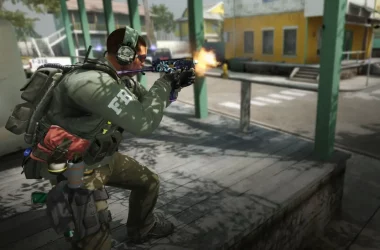Counter-Strike: Global Offensive (CS:GO) stands as one of the most popular and competitive esports titles globally, attracting millions of players and viewers alike. Beyond the reflexes and aiming skills, one crucial aspect often determines the outcome of matches: in-game economy management. In this article, we’ll delve into the significance of mastering the economic aspect of CS:GO and how it can pave the way to success in the competitive scene.
Understanding the In-Game Economy
In CS:GO, success isn’t solely measured by frags and flashy plays; it’s also heavily influenced by how well a team manages its in-game economy. Unlike other esports titles, CS:GO places a significant emphasis on resource management, with players needing to balance their expenditures on weapons, utility, and armor to maximize their chances of victory.
Economic Phases
The in-game economy in CS:GO goes through distinct phases, and understanding these phases is essential for any team aspiring to dominate the competitive scene. The pistol round, early rounds, gun rounds, and eco rounds all require different strategies and economic approaches. Teams must adapt their buying decisions based on the current state of their economy and the opponents’.
Pistol Round: A Strong Foundation
The pistol round sets the tone for the match. A successful pistol round can give a team an early advantage, both in terms of rounds and economy. Wise spending on pistols, armor, and utility is crucial in securing this pivotal round, as it can influence the team’s economy for several rounds to come.
Early Rounds: Building Momentum
After the pistol round, managing the economy becomes a delicate balance between building a stable financial foundation and winning rounds. Players need to make strategic decisions on when to force-buy, save, or go for a full buy. Proper communication and coordination within the team are vital during these early rounds to ensure everyone is on the same page regarding the economic strategy.
Gun Rounds: The Turning Point
Gun rounds, where both teams have a full buy, often serve as turning points in a match. Teams must coordinate their purchases and strategies to secure these rounds, as they can significantly impact the overall momentum and economy. Successful gun rounds can break the opponent’s economy, putting them at a severe disadvantage in subsequent rounds.
Eco Rounds: Tactical Sacrifices
Eco rounds, where a team opts for a minimal investment in weaponry and utility, are tactical sacrifices made to secure a better financial standing for future rounds. Knowing when to eco and when to force-buy can be the key to turning the tide of a match, especially if used strategically to catch opponents off guard.
In CS:GO esports, mastering the in-game economy is as crucial as honing individual skills. A team that understands the nuances of when to buy, save, or force-buy gains a significant strategic advantage over its opponents. Success in CS:GO is not just about aiming and reflexes; it’s about outsmarting and outmaneuvering the opposition economically. In a game where every dollar counts, the teams that excel in managing their in-game economy often find themselves standing tall on the podium of victory.







